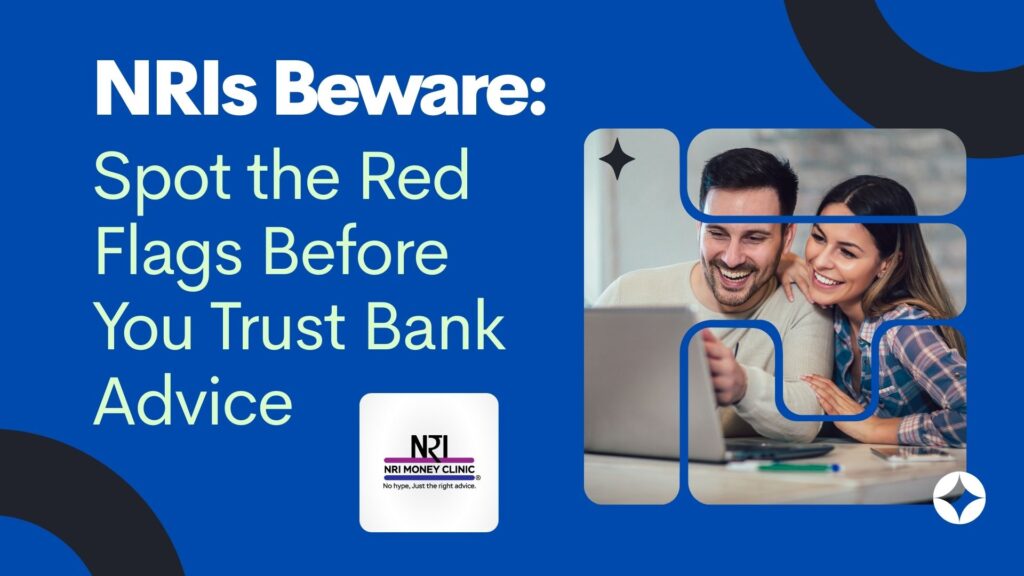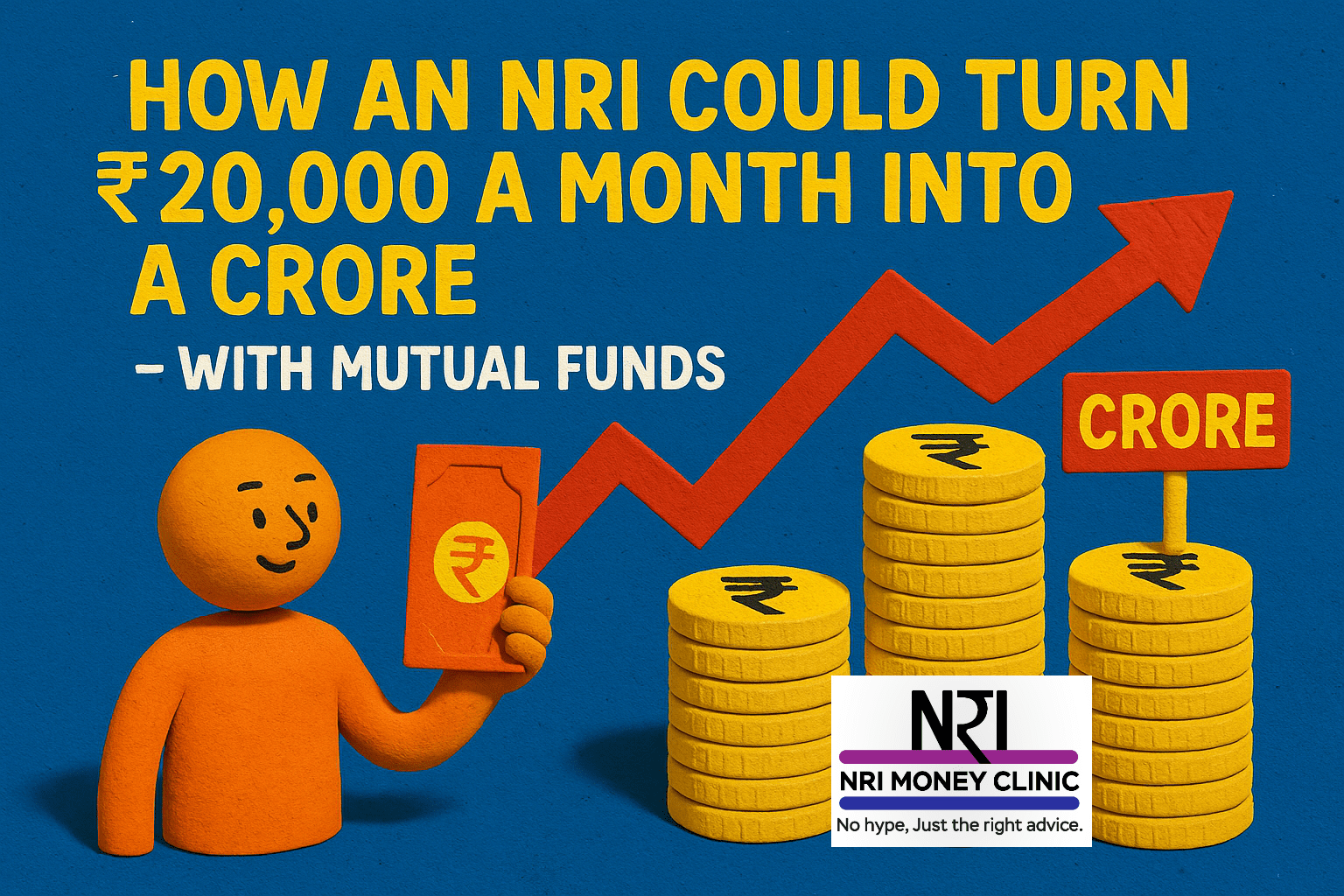Picture this:
You’re back in India for a visit. You walk into a bank to get something sorted—and soon, you’re nodding along to a pitch you don’t quite understand. The staff is confidently suggesting a product or insisting something can’t be done… but something doesn’t feel right.
You leave the bank with a doubt lingering in your mind: “Was I just misled?”
If that sounds familiar, you’re not alone. And this article is exactly what you need to protect yourself the next time that happens.
Real Story. Real Problem.
One of our clients—a gentleman from the U.S.—came back to India and was advised by his bank to close some of his best-performing investments. Instead, he was sold a low-yield insurance plan that locked up his money for years.
Why? Because the bank staff was either misinformed, under pressure to meet sales targets, or just didn’t care. Luckily, he reached out to us in time and we helped him reverse the damage. But not everyone is so lucky.
So how can you avoid such traps?
Step 1: Understand Why Misguidance Happens
There are three common reasons:
-
Ignorance – The staff simply doesn’t know the rules.
-
Sales Pressure – They’re chasing monthly targets and will say anything to close a deal.
-
Deliberate Misguidance – A few bad actors know they’re misleading you—and do it anyway.
Step 2: Spot the Red Flags
Here’s what to watch out for:
-
They insist a certain account “can’t” be opened.
-
They push flashy products without explaining how they work.
-
They say, “This product is closing soon—buy now!”
-
They suggest closing existing investments without clear reasons.
-
They can’t answer your questions convincingly.
If any of this sounds familiar—pause. Don’t act in a hurry.
Step 3: Know Your Rights (And Tools!)
If you feel unsure, do this:
🔹 Ask Questions – “How do you know this?”, “Is there a guideline?”, “Can you show me where this is mentioned?”
🔹 Request Time – Say, “I’ll check with my financial advisor and get back.”
🔹 Refer to NR Cells – Every bank has a specialized NRI desk. Ask the staff to refer your case to them.
🔹 Visit the Bank’s Website – Most banks have an NRI section. Look for official rules there.
🔹 Watch Trusted Videos – We’ve covered these topics in detail. Browse our YouTube playlists on NRI Banking, NRI Taxation, and more.
Step 4: What If You’ve Already Signed Something?
If you’ve signed up and are having second thoughts:
✅ Free Look Period (Insurance) – You have up to 30 days to cancel and get your money back.
✅ Write to the Company – Explain your concern and request cancellation.
✅ Reach Out to IRDA (Insurance Regulator) – If the insurer doesn’t help, IRDA will.
✅ Talk to Experts – Consult an NRI-specialist financial advisor or CA.
Bonus Tip: Timing Matters!
End of the month? End of quarter? That’s when the pressure to meet targets is highest—and when sales staff may get extra pushy.
Be extra cautious during these periods. The urgency is usually about their deadlines, not your benefit.
Don’t Fall for This Common Trap
As NRIs, some of us feel awkward saying “no” to polite bank staff. We feel like we must comply. Please don’t. You’re not obligated to buy anything. You have every right to pause, question, and say “I’ll think about it.”
Remember: A polite “no” today can save you a world of regret tomorrow.
Final Word
If you ever feel something’s off—trust your gut. Do your homework. Take a breather. And never, ever make money decisions in haste or under pressure.
The sales staff might be doing their job. But your job is to protect your money.
Follow NRI Money Clinic for more such insights. Because when it comes to your finances, you deserve the right advice—always.









No comment yet, add your voice below!